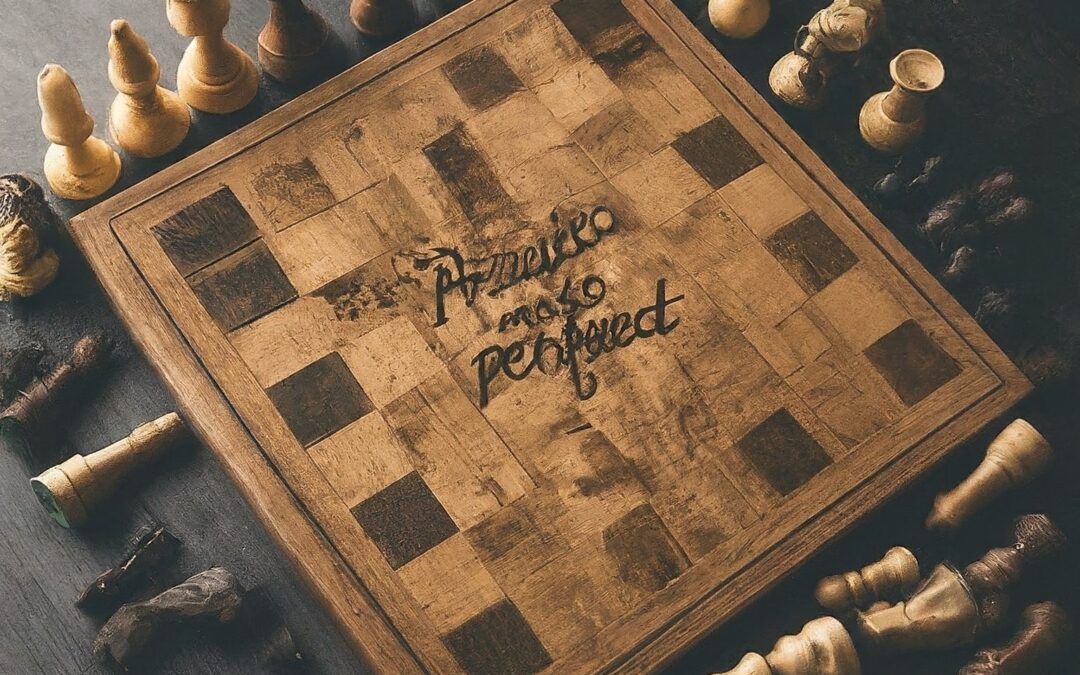Introduction
Whether your child has just started playing chess or has been at it for a while, maintaining motivation can be a challenge. This is true for all sports and activities, including chess. As a coach and social media manager at Premier Chess Academy, I’ve seen firsthand how common it is for players to experience a lack of motivation. In our field of writing, we call it a mental or creative block. If it can happen to us as adults, it’s entirely normal for your child to face similar challenges.
There are many reasons why your child might feel unmotivated. They might find chess boring, or perhaps they’ve lost a few games and feel disheartened. It’s perfectly human for them to not always feel up to the mark. As parents, and especially as chess parents, it’s crucial to recognize these moments and understand how to support your child through them.

What Can You Do as Chess Parents?
-
Effective Communication with your Child
Effective communication is key to helping your child stay motivated. At Premier Chess Academy, we train our coaches to communicate effectively with kids, using various techniques to keep them engaged and motivated. It’s equally important for parents to communicate with both their child and their child’s coach. If you notice your child struggling with motivation, talk to their coach for the best solutions.
As a good chess parent, remember my favorite quote: “Winning or losing doesn’t matter; what matters most is learning.” Encourage your child with phrases like, “Losing is okay,” and “Win or lose, keep playing, keep fighting.” Ask your child what they learned from each game. This mindset can be drilled into their routine during practice sessions at home.
I’ve witnessed the power of this approach in our group chess classes. Once, a child started crying after losing a game, and the other kids began to motivate him without my intervention. One child said, “Losing is okay,” and another added, “Yes, my mom told me that losing is fine in chess, but you have to keep playing.” This collective encouragement helped all the kids get back to their games with renewed enthusiasm. It’s a beautiful memory I will never forget.
-
Explain with Personal Examples
When your child is losing motivation and refuses to play another game in class, they might ask, “Coach, can I play a Puzzle Racer?” or “Can I just watch the other kids play for the rest of the time?” Sometimes, it’s best to give them the time and space they need to recover from a loss.
However, there are moments when a conversation can make a difference. I often open my personal chess profile on platforms like Lichess or Chess.com and show them the number of games I’ve lost. Usually, my losses are in the thousands, while theirs are only in the hundreds. I explain this using winning and losing ratios or percentages.
In chess, especially at the beginner or amateur level, it’s common for about 50% of games to be wins and the other 50% to be losses. The ratio might vary slightly, like 60/40, but the idea remains the same. As kids get stronger, the algorithm pairs them with stronger players, and they will naturally lose more until they understand their opponents’ patterns and playing styles. Over time, they adapt, get stronger, and start winning again. This cycle continues until they reach the top levels, where most games result in a draw for accurate play and a win for excellent play. But those are conversations for another time.
-
Using Rewards to Boost Motivation
When I talk to parents, I often find that they have come up with the best ways to motivate their children, and these are invaluable lessons.
Make playing chess a part of your child’s daily chores. Write it on their whiteboard or green board as a task to complete daily or as part of their weekend routine. Keep the kids excited about completing these tasks by rewarding them. For example, you can assign one star for each game played.
Read more, Global Chess League: A Game-Changer for Chess
The same approach can be applied to reading a chess book. Set a goal for your child to read 5-10 pages daily. If the book is particularly challenging with tough positions to solve, make the goal more achievable, such as reading or solving just three pages. Once your child successfully meets these goals for the week or month, incentivize them. The child should look forward to completing these tasks because they know they will be rewarded.
One parent I know takes their child out for ice cream whenever they achieve their daily goals, but only after a month of consistent effort. If your child is restricted from chocolates, ice cream, or soda due to health reasons, consider different incentives, like a trip to their favorite park or a movie, extra playtime, a special outing, or a fun family activity or you can come up with an idea that suits your child’s interests and preferences.
-
Practice Makes Perfect
This principle holds true for all sports and activities. Just as singing more improves your tonality, or playing cricket or baseball enhances your ability to judge the speed of the ball and how hard to hit, the same applies to chess. The more you practice, the better you get at it. Consistent practice helps in understanding patterns, improving strategies, and developing a deeper appreciation for the game. Encourage your child to see each game as an opportunity to learn and grow, reinforcing that practice is the key to improvement in chess, just as it is in any other skill.
-
Building Consistent Chess Habits
While habit building is closely related to practice, it requires a different approach. Sometimes, kids only have the patience to play one or two games before getting distracted by other activities. Losing in the latter half of their session can be demotivating, causing them to stop playing chess altogether because they don’t see consistent results. They might win three games in the first half-hour but lose the next three, which can be discouraging.
Read more, Top 5 Reasons – “Why Chess Fans Can’t Get Enough of Norway Chess 2024: The Wimbledon of Chess”
It’s crucial to go slow when building these habits. Start by letting them play for just 20 minutes in the first week, then gradually increase the time to 30 minutes in the second week, and so on. This gradual increase helps build their attention span and keeps them engaged. Over time, as they experience more victories and fewer losses, this can serve as extra motivation to continue playing and improving.
Conclusion
If you found these tips helpful in motivating your child to practice chess regularly, consider enrolling them at Premier Chess Academy. Our experienced coaches and supportive community can help your child develop a lifelong love for chess while improving their skills.
Enroll your child at Premier Chess Academy today!


Recent Comments